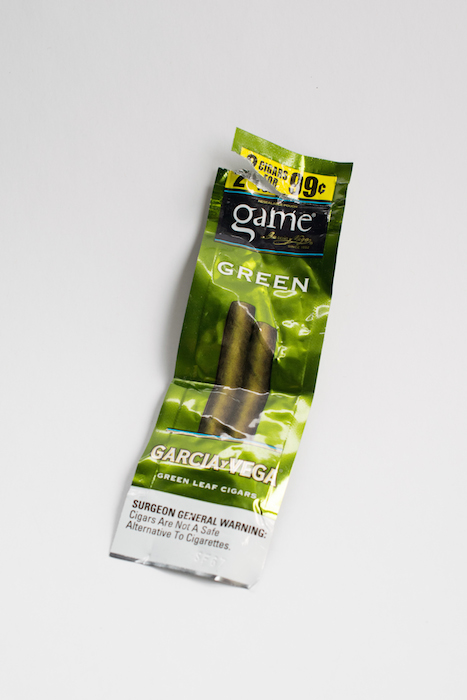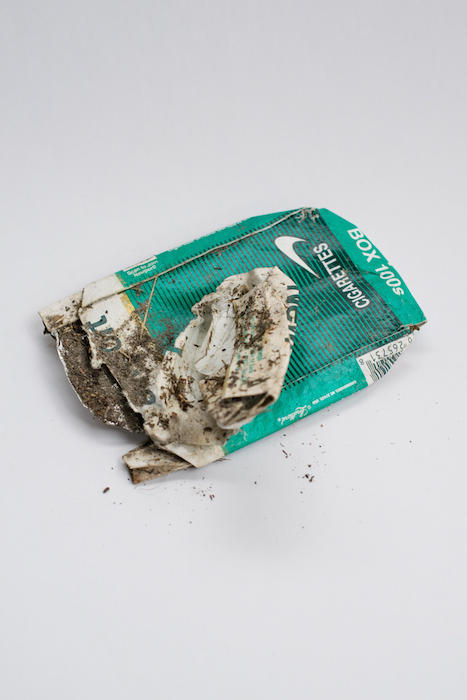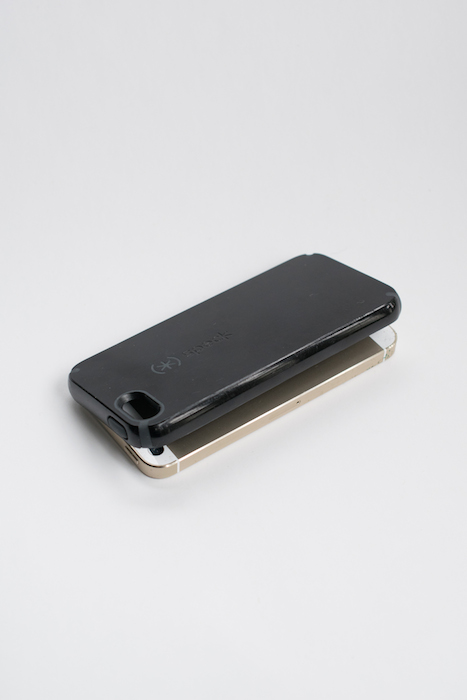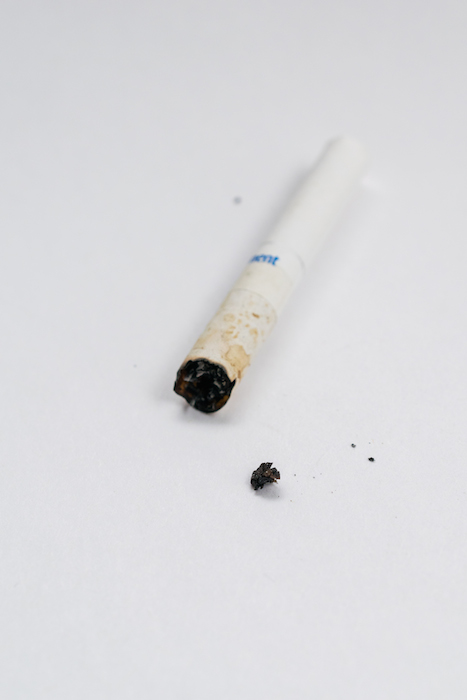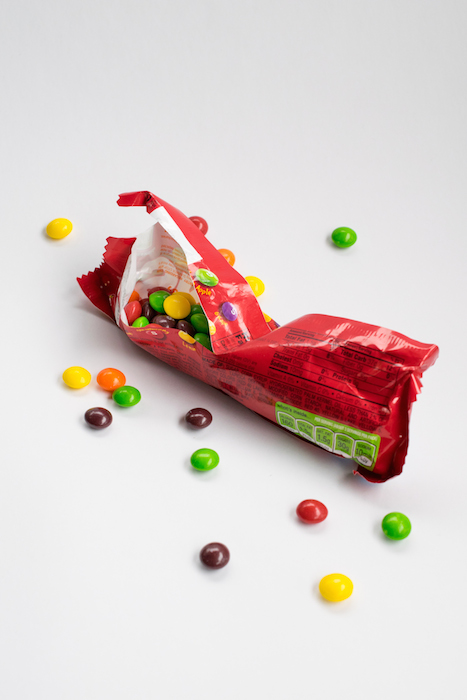Nafis White
Could you tell me a little about yourself?
I’m a fine artist, graduated from Rhode Island School of Design just this May [2015], and my major was sculpture with a concentration in art history. I applied for and was admitted to Goldsmiths University of London, which is where I am right now. I’m in their Master of Fine Arts for two years.
I’m an art person, but an activist, so an artivist.You know, I’ve always been in the scene, and I attribute that to my parents who were both very active, and other family members who were active in a number of ways. So I just follow them in that regard. I’ve been a part of protests and actions…I led a sit-in when I was in high school, in the South…I’ve done things out here, like Black Lives Matter protests, so it spanned. It spanned. I know injustice, and I’m not havin’ it.
I also have two brothers that have been incarcerated, one just got out of prison after many many years, and the other has been in and out since he was a juvenile, so. I have opinions about all that.
You said that you were involved in activism in high school — what kind of activism have you been involved in generally?
In high school I lived in North Carolina, and it was pretty segregated still. You had Black schools and white schools. We had officers at our school that would treat people particularly…I happened to come back from a field trip, and witnessed these young Black teens outside of our school who had their pants down, and were handcuffed. And the cops had just left them there, for everyone to see, like a spectacle. That really angered me, and that’s where that kind of activism started for me — seeing the disparities.
Also as a young person, my dad told me about a situation in third grade where I was excluded…basically the teacher in third grade said you’re a person of color, you’re this child who doesn’t have a lot of opportunity — and you’re not really smart. And she used her power to put me in all of these lowest level reading and math groups, and I ended up testing out of all of them. Thank God for my parents — they asked “why don’t you have homework?” and I was like, “I just don’t get homework.” And they were like, “hold up.” So they tested me into Gifted, out of all of those classes. And that just sat with me.
It’s in the blood. It’s a trauma that’s passed down.
Click forward and what can I say — I’ve been searched and harassed by police in San Francisco, I’ve been with my father and pulled over in a vehicle where he “fit the description” of another person. And I fear that if I wasn’t with him that something might’ve happened to him, you know?
So the kind of activism I’ve done has been around equality and opportunity, mostly.
How did you react to the uprising in Ferguson?
You know when you feel a particular tie to a place? You have family that’s in that place? I felt it even more than in other places when I’m, well, profiled. Shopping — while Black; on the street corner — while Black. Anywhere in the U.S., I felt very watched. When this whole thing went down, I was incensed. All of that experience of being profiled. All of that experience of being held back, or told that you’re not shit, or that you’re a nigger, all this stuff, it just all came at once.
I like to call it blood memory. It’s in the blood. It’s a trauma that’s passed down.
Has that come through in your artwork?
A majority of my work since RISD has been about issues of Black people. And the work has toured—the work has been in New York, I have some that is in New Mexico, in a big show called “Necessary Force: Art in a Police State.” So it’s very much talking about police presence. A lot of it talks about these victims. I’m very particular about talking about women, too—oftentimes Black, what you go through isn’t as important, it’s “let’s get the men through first.” From Harriet Tubman to everyone before and after. So it’s important to also lift up women.
A lot of the work I’m doing now is related to Sandra Bland, so, you know, the work has been about that. I have to think about that. I cannot sever myself from these moments. Because I am [a Black woman]. And you are.
And in terms of movements, the Black Lives Matter movement at RISD for sure. I’ve done marches, I’ve done protests, I’ve done that kind of stuff. I’ve organized photoshoots. One big project I did last year was called “Photographing the Movement,” which was about bringing in activists and shooting them in a very heroic stance, and doing it with their activist families. It was a way to change some of the images that were out there, because you know people can say whatever they want about the people out there holding signs. CNN can change the narrative, you know…”oh, Black people are out of control, they need to be contained.”…
I’m an artist, from a Black experience. So some of my work will be unapologetically Black. Oh well.
Art is a way for me to communicate with people, art is also a way for me to take work, ideas, notions, and put them in places where there’s not that much representation of Black thought and Black art. Making people come face to face with it, for real.
And then people are like “oh yeah, you’re a Black artist,” and no—I’m an artist, from a Black experience. So some of my work will be unapologetically Black. Oh well.
What do you think of the growth of the movement? You’ve been involved with this kind of activism for a while now, what do you think about the way people have jumped in more over the past year?
The way that it’s grown–I think it’s great, bring it. Anyone that wants to be in it, great. I like that it’s slippery in terms of leadership, and people have been so adamant about trying to pin a leader. Well, ya’ll killed off the leaders last time, know what I’m saying? Folks don’t forget that shit.
Michael Brown was murdered, we were asked to be patient. Tamir Rice was shot dead, Rekia Boyd, Renetia McBride…all these people and we’re still asked to be patient?
But I’m so happy about the presence of so many people of color and queer people. I’m queer, so the more representation the better. And as long as we don’t have to be in the background like Bayard Rustin, be writing parts of King’s speeches and organizing the march on Washington and then have to shut up because it’s not okay with other people.
But I’ve been very encouraged by level of participation, and the movement checking itself on a lot of internal issues like self-hate or anti-female, pro-male, anti-queer, sentiment. There’s a lot of people in San Francisco right now, which is where I came to RISD from, a lot of people from the Asian community are backing us up, like they did with the Black Panther party. Chinese, Korean, all different kinds of people.
It’s good, it’s refreshing, it’s right. The more that allies can really allow people of color to be at the forefront, and lead the movement, that’s great, too.
How are things in London?
It’s a good fucking move, because I need to be alive for this. It’s taxing, day in day out, being a person of color, the things that you have to experience. I’m looking forward to perspective and space. And once I got out here, the biggest change for me was that class is a big issue, in London, but people don’t really give that many fucks about race, that I’ve seen, to be honest.
I’m making my way around, I was not getting profiled, people were not interested in following me around in stores, people were not interested in slandering me and calling me a nigger, and all this other stuff….People, instead of looking at me like “what’re you doing here?” are more like, “yeah I’m gonna help you out.” Whole different feeling. To the degree that I don’t even know if I want to go back to the U.S.
That shit is toxic. It is toxic. I wish people could experience what I’ve experienced, you know? I was “like wow, nothing? Nobody’s following me? This is amazing!” People just take you at face value. I don’t have folks crossing the street in front of me to try and get out of my way, I don’t have women adjusting their purses or men checking their wallets. You don’t have that kind of stuff.
You make sure you’re palatable for the consumption of white eyes, and not threatening…Aren’t I enough? Aren’t my accomplishments enough?
But that tells you how sick the U.S. is. It’s given me a lot of perspective. I’ve been here only four weeks, and it’s been healing. Heal. Ing. Because now I can really take care of what I need to. I feel very like James Baldwin, I feel very like Nina Simone. Josephine Baker who had to get the hell out and really just take it in, and then just continue their work…
The thing about microaggressions, and real aggressions and real racism — you experience both every day — and you see for yourself DuBois’s double consciousness. You make sure you’re palatable for the consumption of white eyes, and not threatening. Baldwin said it would make you mad, it would make you crazy living in that way. I think people are just tired of having to segment yourself into these different dualities. Aren’t I enough? Aren’t my accomplishments enough?
In Oakland right now, it’s a big deal—with friends of mine who are near Black churches, there’s a lot of gentrification. And the police have been called because the choir is too damn loud.
That’s so sad.
Not even kidding. There are signs at the park that say “no barbecuing, no this, no that,” but they’re letting all these white folks do acrobatics, and fire torches and stuff, but Black people can’t be doing any of the stuff they do. But if you have a permit? And you’re paying? It’s a different story.
It would be nice if we didn’t have these rules for a few. It would be nice if people who had minor brushes with the law who had a nickel or dime of weed didn’t have to serve 10 years.
And then not be able to vote.
Strategy. It’s chess.
Thinking about “aren’t my accomplishments enough,” I’m also interested in how respectability politics is coming into play with activism. A lot of the actions last winter were very disruptive, and people were taking issue with that. What are your thoughts on that?
Right now there are no rules of engagement. When you can shoot Black & brown people at point blank range, and children at that point — God rest Tamir Rice — criminalizing bodies, and making people out to be these ogres, these hulks…what’s the rule of engagement there?
In terms of respectability, I have to say, maybe I’m a little bit more radical in that I think we have been respectful, for decades…it’s been decades. Okay? We’ve been good. We’ve been playing. Rodney King got beat to filth and you know, people got acquitted. But that’s minor, you know…Michael Brown was murdered, we were asked to be patient. Tamir Rice was shot dead, Rekia Boyd, Renetia McBride, all these people and we’re still asked to be patient?
If you had to try to sum up the goals of the movement, what would you say?
A few of the goals are dismantling the prison-industrial complex, really looking at the privatization of these kinds of systems and dismantling that. There’s no reason that law enforcement should be doing what they were doing in Ferguson, making quotas to be able to fill jails with people who are already poor and trying to make it out, in a system where they’re not supposed to make it out. I would say that those systems need to be severely changed.
It feels like we’re just cogs in a wheel of a system that’s not supposed to benefit us.
In terms of other long-term goals, we just don’t need Black people dying like this. And brown people dying like this. I think we need to look at guns in this country, and really make it difficult for people to get weapons, and there need to be entry criteria for the police force. I don’t think it’s okay to just have buddies of buddies get into a place where they can make a decent living but continue to be in a system that allows their racist beliefs to permeate, and damage and destroy families…
Until that stuff changes, it feels like we’re just cogs in a wheel of a system that’s not supposed to benefit us. At all. But we are generating money for others through our continued enslavement.
Is there advice you would give to people about how they can get involved, or what they can do to feel like they’re contributing?
Some people are all, “well, if you’re not in the street, you’re not down,” and I believe very differently. I feel like there’s a lot of different ways in which activism is done. I think people can engage in terms of the investigative portions, looking at policies—very much not in the streets, but behind the scenes. Even talking to other people about it, advocacy, and being aware of movements happening.
Phantom Negro Weapons
Defined as “Weapons” that are generally in the possession of Black and Brown people, which are initially perceived of as guns, knives, pipes, box cutters, switchblades, etc. by policing forces. The possession of such “weapons” often results in the fatality of the suspect, usually by police. Upon further investigation, these so called lethal weapons in possession of the victim somehow disappear and the “weapon” that remains is a spoon, watch, change, hoodie, waistband, candy, nothing and so on.
(scroll for series)
To see the full series, visit Nafis’s website
